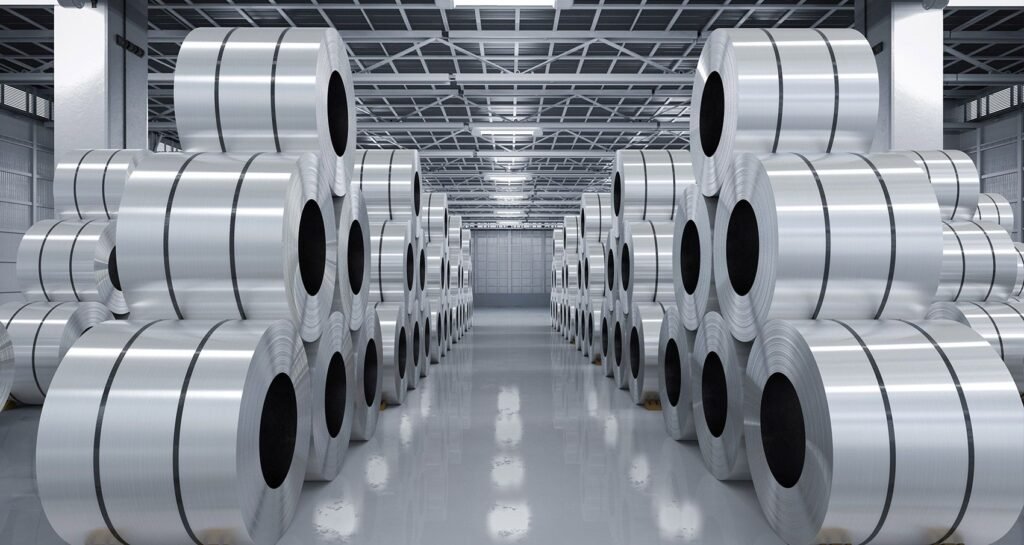Recent Posts
India Blasts U.S. Steel & Aluminium Tariffs as WTO Violation; Reserves Right to Counter

India has sharply criticised the United States’ decision to impose steep tariffs on steel and aluminium imports, calling it a violation of World Trade Organization (WTO) rules. The government said these duties undermine multilateral trade principles and confirmed that it has formally reserved the right to retaliate under WTO provisions.
The U.S. has increased tariffs from 25% to as high as 50% on certain products, a move that could significantly affect Indian exports. According to government estimates, around USD 7.6 billion worth of shipments—particularly steel and aluminium—will be impacted. India has indicated that any countermeasure could match the revenue Washington gains from these duties.
In its notification to the WTO Council for Trade in Goods, India invoked its right to suspend “substantially equivalent concessions” under the Agreement on Safeguards. This legal mechanism allows countries to respond proportionately to trade restrictions that are deemed inconsistent with global rules.
However, the U.S. argues that its tariffs are justified on national security grounds under Section 232 of its domestic trade law, and therefore are not safeguard measures subject to WTO action. This stance effectively disputes India’s legal basis for retaliation.
The dispute comes at a time when India and the U.S. are in discussions to deepen economic cooperation. Trade experts believe India’s move is a calculated signal—asserting its willingness to defend its trade interests while keeping the door open for negotiations.
Should India proceed with retaliatory tariffs, it could impose duties on a range of U.S. products to an equivalent value, although no immediate action has been announced. For India, the matter is as much about defending principles of fair trade as it is about protecting its economic interests.
Recent Posts
Categories
- Airport3
- AP37
- Apartments30
- Bengaluru131
- Budget 202521
- Cement112
- Chennai319
- Construction596
- CREDAI27
- Editors Pick42
- Equipment27
- Events11
- GST13
- Highways77
- Hotel1
- Housing114
- Hyderabad43
- Industrial242
- Infrastructure363
- Interiors15
- Iron Ore21
- Karnataka38
- Kerala26
- Land71
- Market Updates204
- Metal27
- Metro89
- Mining19
- MSME11
- News1,522
- NHAI54
- Paints34
- Properties40
- Puducherry8
- Real Estate475
- Road171
- Sand22
- Short News117
- SIPCOT3
- Steel Daily341
- Stocks6
- Tamil Nadu295
- Technology40
- Telangana29
- TIDCO2
- Trade5
- Trending News1,083
- Video2
Related Articles
Shyam Steel Enters Decorative Paints Market with Macaw Paints Launch in West Bengal
Shyam Steel enters the decorative paints market with Macaw Paints, launched in...
BySamrita JosephSeptember 24, 2025Vizhinjam–Navaikulam ORR: NHAI to Appoint Consultant for Tunnel Feasibility Study
NHAI will appoint a consultant to study tunnel feasibility along the Vizhinjam–Navaikulam...
BySamrita JosephSeptember 24, 2025Visakhapatnam Steel Plant to Remain in Public Sector: Lokesh Reaffirms
Andhra Pradesh IT Minister Nara Lokesh reaffirmed that the Visakhapatnam Steel Plant...
BySamrita JosephSeptember 24, 2025UCCIL Warns 30% Export Duty on Low-Grade Iron Ore Could Hit Industry and State Revenues
UCCIL warns that the 30% export duty on low-grade iron ore could...
BySamrita JosephSeptember 24, 2025















Leave a comment